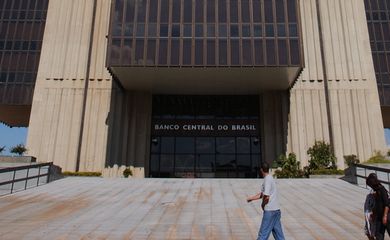Workers and business leaders advocate alternatives to high interest rates


Miguel Torres, chair of the union

The Força Sindical workers' union has declared that the Central Bank's Monetary Policy Committee (COPOM) decision to keep the benckmark interest rate (SELIC) at 14.25% is disastrous for workers. “The government continues to lock economic growth and development in the country. This economic policy is no longer working,” Miguel Torres, chair of the union, said in a note.
Torres also said that the government's conservative approach is undermining all hopes of recovery this year. As he pointed out, “high interest rates are bleeding the country dry and impairing development. The market has lost job creation momentum, and industrial performance has deteriorated in recent months.”
In a statement, the Federation of Industries of the State of Rio de Janeiro (FIRJAN) described the current economic situation of the country as a combination of the worst recession since 1990 with inflation and public deficit at peak levels since 2002. It went on to say that an effective fiscal adjustment policy would be the only anchor capable of rebuilding confidence among businesses and consumers and beginning a new growth cycle.
The federation went on to say that effective steps must be taken to curb public spending. “Stopping the upward trend of the SELIC rate is a measure that urgently needs to be combined with clearer measures to tackle the fiscal imbalance this and in the coming years, or we will lose control over the government debt growth and inflation, two key areas of achievement in Brazil's recent economic history.”
For the Federation of Trade in Goods, Services and Tourism of the State of São Paulo (FecomercioSP), the escalating unemployment and the sharp economic downturn are likely to have contributed to the Central Bank's decision to keep the SELIC rate at its current level.
“Even with still-high inflation—nearly 10% in 12 months—the recent pressure created by the dollar hike, and deteriorating outlook for inflation next year—it is moving closer toward the target ceiling—the Central Bank has shown some common sense,” it said in a statement.
Also according to FecomercioSP, despite the worsening crisis, the government still needs more coordinate efforts to present a consistent plan for putting public finance back on track. “It's time to acknowledge past mistakes and take on the political cost of urgent reforms without resorting to new tax increases that would only lead to deeper recession and higher inflation, with no guarantee of increasing revenue.”
For the second consecutive time, the Central Bank has decided not to change the benchmark interest rate.
By unanimous vote held on Wednesday (Oct. 21), the SELIC rate was kept at 14.25% per annum, a level it has stood at since the end of July.
Translated by Mayra Borges
Fonte: Workers and business leaders advocate alternatives to high interest rates




